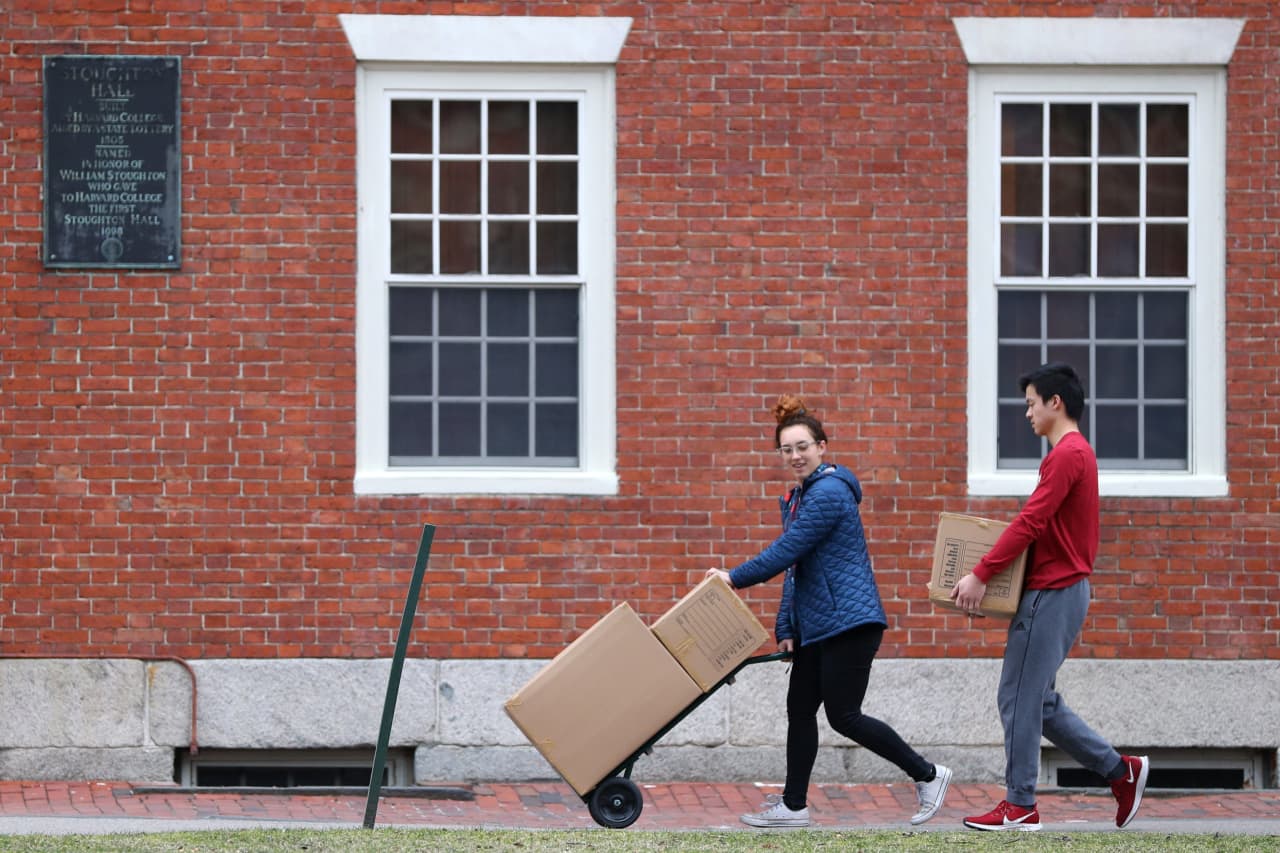This post was originally published on this site

As fall grows closer and the coronavirus pandemic shows little sign of abating, a slew of prominent colleges are announcing they’ll be offering classes primarily remotely this fall.
Harvard University announced Monday that all of its courses will be offered online this fall. Princeton University and Rutgers University also both announced Monday that the vast majority of their courses will also be offered remotely. In the past few weeks, Yale University and the University of Massachusetts at Amherst have also said the bulk of their coursework will be offered online.
The majority of colleges that have announced their plans — roughly 60% — are still planning for an in-person semester, according to the Chronicle of Higher Education, which is tracking college’s plans. But these more recent announcements mark a shift from those made this spring or earlier this summer when many colleges vowed to hold at least some classes in person.
Over these past few months, colleges have been trying to balance revenue concerns with safety as they prepare for a fall semester unlike any other. Many schools are heavily reliant on tuition and what’s known as auxiliary revenue — funds they earn through the dorms, dining and other on-campus facilities — that could be put in jeopardy with a remote semester.
Another factor that could complicate any college’s decision to rely solely on online instruction: Guidance announced Monday by Immigration and Custom Enforcement that international students with certain visa types may not take a fully online courseload and remain in the United States in the fall.
Many colleges have also been slow to release their plans, worried that their announcement could push students to attend elsewhere. That’s because many students and families are squeamish about the idea of paying full tuition for a reduced experience.
Are you a student or parent making your plans for this fall? We want to here from you. Email jberman@marketwatch.com
In its announcement Monday, Harvard said it would be keeping tuition the same, and for students who live off campus, the school won’t be charging room and board, and is including a $5,000 per semester “COVID-19 Remote Room and Board” allowance in calculating the financial aid award of recipients who don’t return to campus. Princeton said it would reduce tuition by 10% and pro-rate room and board charges, given that the bulk of students will be leaving campus at Thanksgiving break.
‘Political cover’ for more colleges
Harvard and other elite colleges’ announcements that they would be offering courses largely online gives other colleges “political cover” to also go mostly remote, said Robert Kelchen, a professor who focuses on higher education finance at Seton Hall University. Still, Ivy League and other highly selective colleges are in an enviable position, both in terms of their access to resources and top students that could make a remote semester more difficult to stomach for less-selective schools.
“If a student has gotten into one of these very, very selective schools, they’re not going to give up their place if they have to study online for a semester,” said Catherine Bond Hill, managing director at Ithaka S + R, which consults with universities and nonprofits, and the president emerita of Vassar College. “It’s much easier for the highly selective schools, which correlate with the better endowed schools, to make those decisions.”
These schools also have the resources to invest more in their online teaching capabilities and faculty support to improve the remote learning experience, she added.
Elite schools also perhaps have more leeway than other, less-resourced schools to offer some aspect of the in-person campus experience, even with remote classes. Harvard, Princeton, Yale and others are bringing some students back to on-campus housing in staggered arrangements. In Harvard’s case, freshman will be allowed in university housing during the fall semester and seniors will be allowed back in the spring.
For one, these schools have the funds necessary to pay for the testing and other safety protocols that are required to bring students back into residence halls, said Kelchen. In addition, these research institutions rely less on the funds they bring in from campus housing than other four-year colleges with less robust resources, he said.
The financial room private, well-endowed colleges have to make these choices makes Rutgers’ announcement “the most consequential of the day,” Kelchen said.
“It’s a large public university system and their finances are still in pretty good shape,” Kelchen said of Rutgers, “but they’re more like the typical college in that they have to worry significantly about balancing their budget.”
As part of its announcement Monday, Rutgers said it would offer “extremely limited” on-campus housing. The school’s budget, approved last month by its Board of Governors, anticipates a more than 40% drop in revenue from auxiliary services than the fiscal year 2020 budget. The school has already implemented a number of measures, including faculty pay cuts, to cope with coronavirus-related losses.
At UMass, students will be given the option to return to campus housing, even though the bulk of coursework will be done online.
“Some of these cuts may last for years to come,” Kelchen said of the impact of revenue lost as the result of the pandemic.

